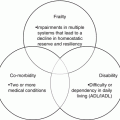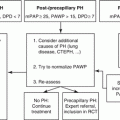© Springer International Publishing Switzerland 2015
Harald Rittger (ed.)Interventional Cardiology in the Elderly10.1007/978-3-319-21142-8_1111. Ethical Aspects of Interventional Cardiology in Geriatric Patients
(1)
Geriatric Acute Care Department, Krankenhaus Hietzing mit Neurologischem Zentrum Rosenhügel, Wien, Austria
Keywords
ElderlyEthicsCoronary interventionQuality of lifeGeriatric medicineIn the past years medicine has achieved amazing progress in diagnostic and therapeutic interventions, particularly in new technologies expanding the boundaries of the possible, of the “doable”, nurturing hopes and expectations of alleviating burdensome symptoms, of curing conditions that in the not so far past were considered to have a grim prognosis.
Many of these conditions are associated with advanced age. Geriatric patients are becoming a prime target group for new interventions promising them more years of life enjoyed in good quality, acceptable condition and function, self determined and autonomous. Deciding about medical diagnostic and therapeutic interventions for and with geriatric patients may present some particular ethical challenges.
Ethics is a fundamental part of geriatric medicine. Ethical questions are important in all fields of medicine, but in geriatrics they are of particular importance. This branch of medicine is concerned with the care of health problems of mostly very old people close to the end of their life. They are physically, mentally and socially vulnerable – frail – individuals with a high risk for progressive deficits in physical and cognitive functions, thus progressively dependent on help and care.
Decisions about medical interventions are easier when the patients concerned have an intact decisional capacity. This situation becomes more complex and difficult when dealing with multimorbid, frequently cognitively impaired very old individuals.
Ethics is about systematically asking the right questions [15]. This process should be logically structured, questions may remain unanswered. It is about questioning prejudices and modes of action, it means explaining terminology, requesting the best facts possible, formulating definitions, and helping to reflect a problem. Good ethics begins with good facts, with good evidence – not with groundless assumptions.
An ethical problem consists basically of the question of what should be done, not what can be done. In this context fits a citation by Jean-Pierre Junod, a pioneer of European geriatrics:
The desire to dominate the medical situation by all means is only the expression of a misguided striving for success. Our medical knowledge is often beyond the real expectations of the aged patient. In geriatrics the physician, the nurse, the therapist frequently have to accept being guided by the patient. Dominating the aged patient physically and emotionally, disregarding his or her dignity, neglecting his or her general needs are at the origin of many ills. Failing to share the same hopes and aspirations may result in the danger of being able to dominate only one’s own ambitions. [11]
The seemingly most important questions concern situations in which life or death decisions have to be made: should one start cardio-pulmonary resuscitation? Should invasive diagnostic and therapeutic interventions be pursued? Should one intubate, should artificial nutrition, should dialysis be started? These question always concern an individual, they are of utmost importance in his or her real life context. The everyday situations with questions arising are apparently less dramatic: Can a patient be discharged home? Should one propose nursing home care? Should a particular, perhaps burdensome therapy be initiated? Is informed consent possible? These questions are best discussed in a multidisciplinary team.
Ethics – Attempts of a Definition
Ethics is a discipline of philosophy. Generally speaking it deals with questions concerning the good and the attitude that should determine human action. Ethics is about questions arising from the interaction between individuals of a society. Using philosophical methods ethics attempts to demonstrate the fundamental principles for a just and meaningful action in living together with others. Ethics is effective when it is about acting with or deciding for other individuals. Ethical principles and justifications should not rely on external authority or convention, they should be applicable universally with reason and sense, and they should take a higher-ranking position than morals [13].
In simpler, more pragmatic terms the Austro-American Physician and Bioethicist Erich H. Loewy explains ethics as a discipline that proposes the question “How should I act when also someone else could be affected?” Ethics theoretically inquires about the “good” and the “bad”, but in practice – in most of the situations – it is about he “bad”, the “worse” and the “even worse”. Ethics is not about the exchange of unfounded arguments, it is concerned with general rules and guidelines as well as with problems in individual cases. Ethics calls for tolerance of other opinions in a human framework [15].
The theologian and ethicist Ulrich Körtner defines ethics as the “self-reflexive theory of morals”. That means judging the morality of human action according to the categories of “good” and “bad”. Contrary to “ethics”, the ancient Greek term “ethos” or the Latin “moralis” describes behavioral norms in a society or a group accepted and stabilized by tradition [12].
Ethics is not an individual’s personal morality. One’s own conception of morality can be derived from religion, culture, tradition, personal experience and conscience but it will not be the same for a person of another tradition, with different experiences. Ethics attempts to find a common denominator for different world-views, religions and cultures and whenever possible to propose a framework in which different individual moral conceptions can be expressed. Ethics tries to reflect critically and objectively what has been established as moral habit in a society and to look for generally acceptable, objective criteria and rules for modes of behavior. Ethics should question prejudices and established procedures, demand exact definitions, it should help to logically reflect problems, to pose questions in a systematic, structured way. In a secular and pluralistic society ethics should be kept free of all religious and ideological premises [23].
Medical ethics is not only about presenting and discussing individual patient cases, it is not just the application of “moral common sense” of physicians. Medical ethics is no special ethics, it means rather ethics in special situations – like for example ethics in geriatrics. It refers to physicians’ actions and to patients’ attitudes, to situations common in the hospital, the nursing home, the doctor’s office. Beyond that it encompasses ethical problems of institutional actions, like for example issues of distributional justice in the healthcare system [24].
Good ethics needs some prerequisites: first of all it needs a good knowledge basis and good facts. In medicine this means that physicians who are not competent enough in their domain, who do not continuously keep themselves informed, who are not up-to-date with the latest developments in their specialty cannot act also ethically correctly. Good ethics begins with good facts, not with groundless assumptions [16]. Good, ethical decisions are not possible without optimal knowledge and competence in diagnosis, prognosis, and treatment alternatives.
Another aspect to keep in mind is the fact that professionally and ethically good medical action – as Erich Loewy said – does not happen “in a vacuum”. The framework in which the physician has to act is determined by the institution (the hospital, the healthcare system) and thus by the society. It is very difficult to act in an ethical way in an institution that is not based on ethical principles. It is equally difficult to build a just, ethical healthcare system in an unjust society [18].
The Importance of Ethical Considerations in Geriatric Medicine
Why should ethical considerations have such a high level of significance particularly in geriatrics? Especially when – as mentioned above – ethics is about the search for basic principles for just, meaningful, judicious, reasonable – in one word: good – action. There are a few explanations:
Geriatric medicine deals with old, very old, patients who frequently are in need of help and care because of their higher risk for losses of physical, cognitive, emotional and social function. The situation of these vulnerable, frail patients often is not adequately taken care of by our social and healthcare system.
Geriatric medicine can also be characterized by the fact that it deals with people at the end of their lives. Death is not the absolute adversary in this field of medicine, not necessarily a symbol of failure. In many respects there is concordance between Palliative Care and Geriatrics.
In Geriatric Medicine patients are being taken care of not only for a more or less limited period of time, but for the whole of the final period of their lives, often in an environment not of their primary choice, like for example in a nursing home.
Therefore, ethics is a fundamental part of geriatric action. This is particularly true when considering frailty, the risk of dependence on help and care by others.
The discussion of ethical problems in geriatrics circles around two poles: one is autonomy, the right of a person to determine his or her own fate, to exert his or her own will – even though taking into account certain limits set by society. With geriatric patients frequently the question arises whether he or she possesses the competence to comprehend and to judge the situation and if he or she has sufficient independent decisional capacity. The other pole is beneficence, the obligation to do well to others, to help minimize suffering. Oftentimes this borders on paternalism – one acts and decides in conflict with the principle of autonomy (see below).
The infantilization of the older person is wrong and unethical, even in the presence of cognitive impairment (dementia) that may lead to a gradual loss of cognitive capacities. But there are variably long individual progressions of cognitive functional deficits between early and advanced stages of dementia. The presence of this diagnosis does not automatically imply an incapacity to comprehend and to chose and decide independently.
Principles of Biomedical Ethics
Present day biomedical ethics is guided by four key considerations proposed by Beauchamp and Childress as moral principles to help focus everyday decisions in medical practice. They are the basis of an ethical system termed “principlism” that guides medical decision-making in our pluralistic society, they provide a basic analytical framework for reflecting on moral issues within biomedicine [2].
These four guiding principles are:
1.
Beneficence: this principle implies the general human obligation to do good, to act to the benefit of others, for the physician it means the duty to act in the best interest of the individual patient. It demands to weigh the expected benefit of medical interventions against their potential harm – this judgment always has to be done in the decision making process.
2.
Non–Maleficence: requires to avoid harm and suffering from other individuals, patients. It means the obligation to respect the individual’s right to his or her spiritual and physical integrity.
3.
Autonomy: requires the respect of the individual’s right for self-determination as far as his or her personal existential perspectives and concepts go. This is implicit in the rule of informed consent in decision-making by which the patient should be provided with clear information about the expected benefits and risks of the procedure. This principle also implies the physician’s duty to help the patient maintain control over his or her medical treatment.
4.
Justice: this principle obliges to avoid discrimination by irrelevant criteria, to guarantee fairness of access to resources. It means also that patient selection criteria should be as objective as possible, transparent and reproducible.
Tensions and conflicts between these four principles may arise, frequently they cannot be eliminated, and one has to able to tolerate them in a constructive way [4].
The four guiding principles of bioethics should be applied also in interventional cardiology, for example in deciding whether or not to perform a transcatheter aortic valve replacement in geriatric patients [3]. Weighing expected benefit and potential harm for the individual patient, thus following the principles of beneficence and non–maleficence, is crucial. When considering such an intervention, the fundamental question is the extent to which the patient’s quality of life will be improved. This key question must be considered and discussed with each individual being assessed – thus honoring his or her autonomy.
In this respect “what can be done” and “what should be done” are not equivalent questions. A patient’s right do die with dignity must be respected. The principle of autonomy also makes informed consent in decision-making obligatory. The patient should be provided with clear, comprehensible information about the expected benefits and risks of the procedure. In particular the patient should be made aware of the risk of death or serious complications such as stroke. In the case of the transcatheter aortic valve replacement, the patient should understand the still prevalent uncertainty about long-term benefits and risks of TAVI and valve durability (Boothroyd 2013). The intervening physician must provide information about the risks and benefits of different strategies to the patient and family and balance also the benefit of thorough discussion, perhaps requiring time for reflection, with the benefits of rapid intervention [14].
The principle of justice implies that patient selection criteria are as objective and transparent as possible and that access to the procedure is fair and just. It is also the physician’s duty to treat the individual patient responsibly with due consideration of other patients and stakeholders in the health care system [14]. Respecting the principle of justice also requires the consideration of how decisions regarding one patient may also affect other patients and providers.
The principle of justice calls for an unbiased, equal allocation of resources that are limited. Nevertheless, “ethically speaking”, medical interventions should be planned and care provided with the sole intention of improving the individual patient’s quality of life and/or decreasing his or her risk of mortality “independent of reimbursement considerations and without inappropriate bias or influence from industry, administrators, referring physicians and other sources” [5].
About Ethical Problems and Issues in the Care of Geriatric Patients
An ethical problem is present when in a situation requiring a decision or an action uncertainty or disagreement arises in judging the decision or action according to the categories good and bad or right and wrong. With the aim of productively transforming this uncertainty or disagreement into a realistic course of action a process should start in which moral judgments become clear and can be expressed [31].
The response to an ethical question, the solution of an ethical problem, is not only a certain action, but in addition also an explanation and justification based on specific knowledge and facts. Thus the question by which to start an ethical case discussion should first of all aim at the course of action in the particular situation.
Here are some examples of more or less general question with ethical implications arising in everyday medical, nursing or rehabilitative care of geriatric patients. A practical suggestion how to approach them in a structured, systematic way will follow:
What are our therapeutic, rehabilitative, nursing efforts good for? How do they make sense?
Who is being taken care of in reality? Is it always the patient? Could it in some cases not be the patient but rather the relatives, the institution, or the society?
The patient’s will is sometimes the opposite of the benefit intended for him – how to deal with this situation?
How does one determine the will of a patient who is not (any longer) able to communicate, like in advanced dementia, in sensory impairment, in coma?
Stay updated, free articles. Join our Telegram channel

Full access? Get Clinical Tree







